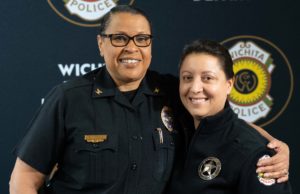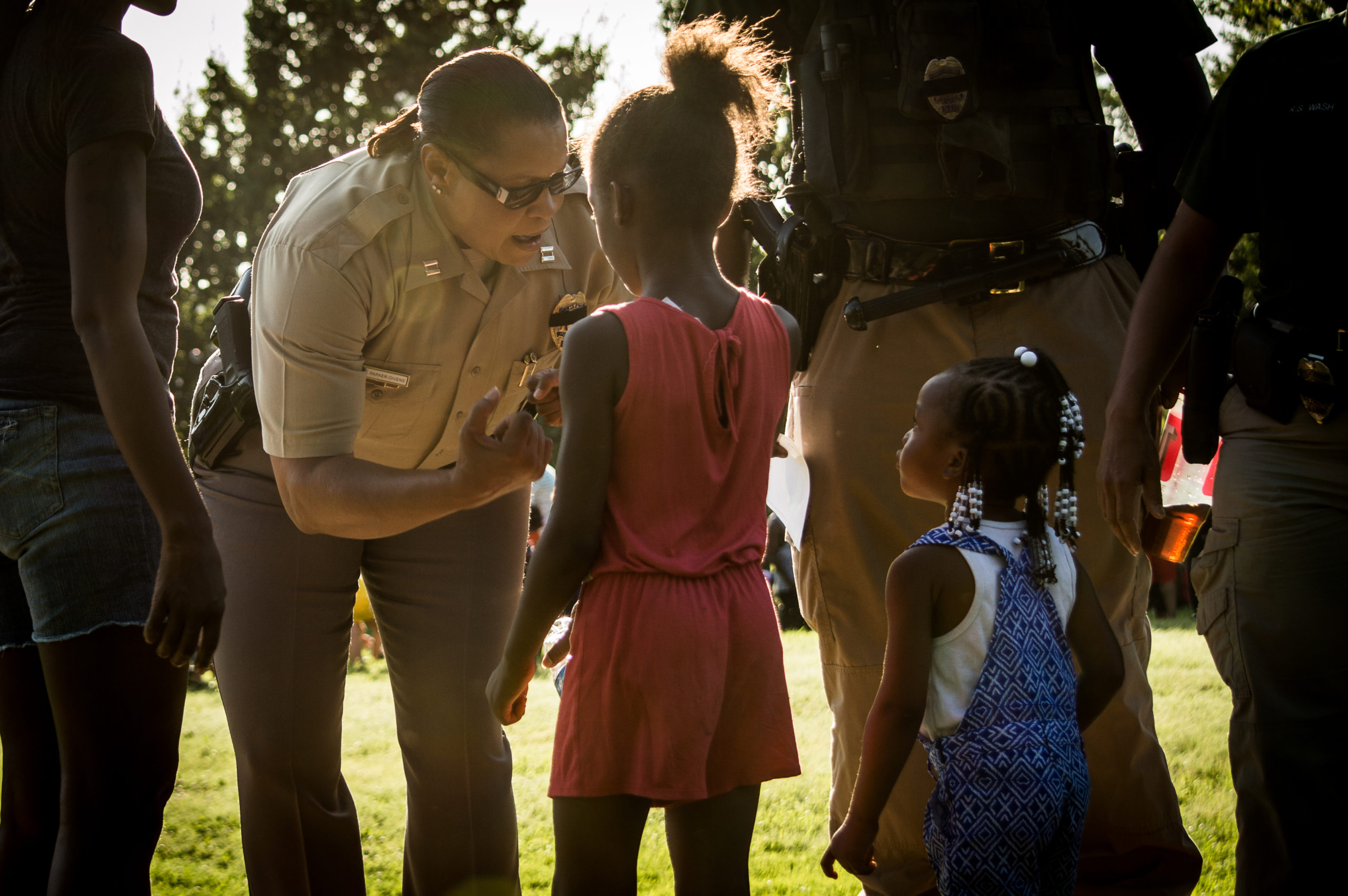When Wanda Parker-Givens retired last month from her 34-year career with the Wichita Police Department, she already had a plan for a second career.
This fall, she’ll start on a doctorate in educational leadership at Wichita State University.
“I think I’m going to teach,” Parker-Givens said. “I always wanted to go back to school. I (don’t) want to just be known as a police officer.”
Growing up in Wichita in the 1970s, the athletic Parker-Givens didn’t envision herself as a police officer. That is until one afternoon during her freshman year at Wichita South, when she saw something that still isn’t a frequent sight in Wichita.
As she walked across the parking lot to softball practice, “I saw Linda Grant, probably six-foot-one, and Zora Graves, about five feet, in uniform, and I stopped in my tracks. I didn’t know the Wichita Police Department had African American women on the force, someone that looked like me. They became two of my mentors when I came in, and I still keep in touch with them.”
Parker-Givens was honored last year with one of The Kansas African American Museum’s Trailblazers awards, given to those who lead, innovate and pioneer. During the Trailblazer ceremony, Chief Gordon Ramsay gave credit to Parker-Givens for helping increase the police department’s number of female officers while overseeing recruitment and training of the state’s largest police force. Wichita’s force has a higher percentage of female officers than the national average — 17 percent compared to 11 percent. Out of Wichita’s 665 total commissioned police officers, 105 are women. Yet black women officers still are rather uncommon, with Parker-Givens being only one of seven at her time of retirement.
“This is a hard career to get African-American females into,” Parker-Givens said.

Wanda Parker-Givens, left, is credited with increasing the number of Wichita female police officers.
Parker-Givens was the fifth of seven children raised by a single mom. “I grew up poor,” she said. She went to college on softball scholarships, first attending Butler Community College and then earning a bachelor’s degree from Friends University. Later, she earned a master’s degree in criminal justice from WSU.
As a police officer and longtime coach of a youth track and field team run by former radio personality John Wright, Parker-Givens tells youngsters that college is attainable for them, too.
“I tell kids to use your gifts and talents, and that will equal a degree,” she said. Another thing she tells them: “What is it that you want to be, and I will go find someone who looks like you. That’s how much of an impact it made on me.”
Parker-Givens experienced several firsts with the Wichita Police Department. In 1997, after a decade on the force, she became the department’s first African American woman to become a sergeant. In 2000, she made history again as the department’s first black female lieutenant. She spent 16 years in that rank because she also was making time to raise her three children. During that time, she worked in all three divisions of the department: investigations, support and field services.
She was promoted to her final rank, that of deputy chief of support services, in October 2019. Her husband, Darrell Givens, announced her promotion during an Urban League award ceremony where the Givens’ family business, Givens Disaster Restoration, was honored.
As deputy chief, Parker-Givens was also in charge of the department’s community relations, a job she said was made easier by Ramsey, whom she called the best of the nine chiefs she worked under. Ramsay, hired in January 2016, announced in December that he would leave the Wichita police force in March to return to Minnesota.
Ramsey “encourages our officers to get to know the community,” Parker-Givens said, noting that he also “opened the door” for community members to work with the force.
As one example, all new recruits participate in a panel discussion with representatives of the African American, Hispanic and Asian communities about relationships between the police and their communities.
For Parker-Givens, that’s been important. As a cop, she never wanted to forget where she came from and tried to treat others with respect and dignity, she said.
“I had experiences with police coming to my house when I was a kid and sometimes that contact wasn’t very good, and we hadn’t done anything. I wanted to make a difference.”
Contact Amy Geiszler-Jones at algj64@sbcglobal.net.









